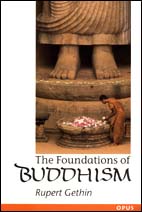Last week I posted a few facts about Jewish Buddhists and realized it was not nearly enough. I’d like to begin with the first installment of a series of posts on the topic of the Jewish/Buddhist connection.
Hanukkah was this past week. What do I really know about Hanukkah? Not that much, anymore. Antiochus (the bad guy) destroyed the temple in Jerusalem, and then there was a lamp that miraculously burned for eight nights on one night’s worth of oil, so we celebrate. I used to know all about Hanukkah, and about all the Jewish holidays, and how to read Hebrew. I can still stumble over the pages of a prayerbook, I think. It’s been a long time. Last time I really tried to read a passage of Hebrew was Passover. The Four Questions. Ma nish tanah halailah hazeh…why is this night different from all other nights? I committed that to memory to impress my teachers and my family.
I guess ultimately when I was a teenager, I didn’t feel like that night was different from any other night. It didn’t feel meaningful; it was memorized. As a kid I was so concerned with being a good student and gaining my teacher’s approval that I excelled in Hebrew school for the praise I received. The knowledge I gained was not knowledge. It was empty. I didn’t learn anything about Judaism that way. In high school my connection to Judaism faded away during family cancers and questions religion couldn’t answer for me.
Yesterday I did some long overdue Hanukkah research. All historiography and controversy aside, this is the traditional story: Around 167 BCE, Antiochus IV Epiphanes (a cool name for a not so cool dude) outlawed Judaism, killed and robbed Jewish families, and desecrated the great temple in Jerusalem. The five sons of a Jewish priest joined together, led by the son Judah (Maccabee) to rebel against Antiochus and they actually successfully defeated Antiochus’s monarchy and restored the temple. During its restoration, Judah ordered for a new altar to be put in place. The eternal flame in the Temple was to burn all day and night, but during the temple’s restoration, there was only enough of a supply of the oil for the lamp to burn for one day. The oil miraculously lasted 8 days, enough time for more to be gotten. So there you have it: A fuel-efficient candle holder. The miracle of Hanukkah.
Eh, maybe there’s something more to it.
On Sunday night, my dad and his girlfriend had a Hanukkah dinner at their house. We said the prayers, lit two menorahs, ate a ton of latkes (fried potato pancakes), played a really dorky game of dreidel (a game of chance with a spinning top), and exchanged our gifts. What was meaningful to me about that night wasn’t the religious background to the holiday – it was the traditions that my family has kept alive. When was the last time I played dreidel? Seriously? Probably five years ago, I’m not sure. And the significance of dreidel probably has as much to do with Hanukkah as chocolate bunnies have to do with Easter, but I get it now. Amidst the indigestion from the deep fried pancakes, I saw it. It’s about sharing something, having something we do that is ours. It’s so simple: tossing chocolate coins into the pot and groaning when you lose them all; seeing my dad’s face light up when he won; my sister’s beautiful red, curly hair illuminated by the flickering glow of the candles. Both of them cancer survivors, and we’re still laughing and eating potato pancakes and playing dreidel together years later. The Maccabees fought an entire monarchy in order to fight religious intolerance – and they succeeded.
Nes gadol haya sham, the letters on the dreidel signify. A great miracle happened there. What miracle? A lamp burning oil? Some miracle. My family’s strength is the miracle. For me, to celebrate the miracle of Hanukkah is to be grateful for my family – that these beautiful beings in front of me pulled themselves out of a crisis, defeated an attacker, and are here to celebrate with me. At Hanukkah I will remember that moment of Lovingkindess clarity and meditate on my heroes.

